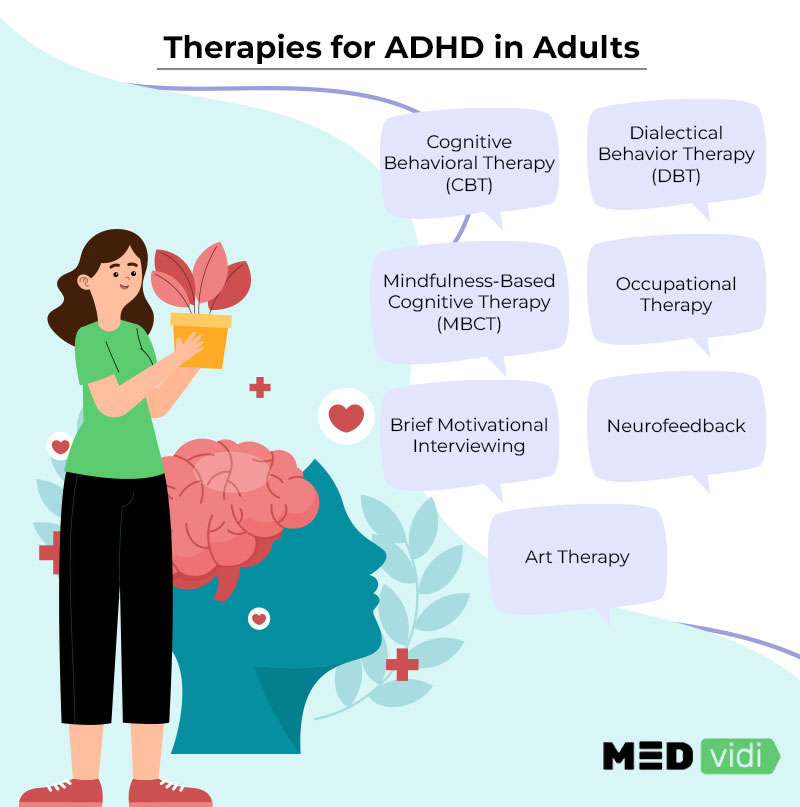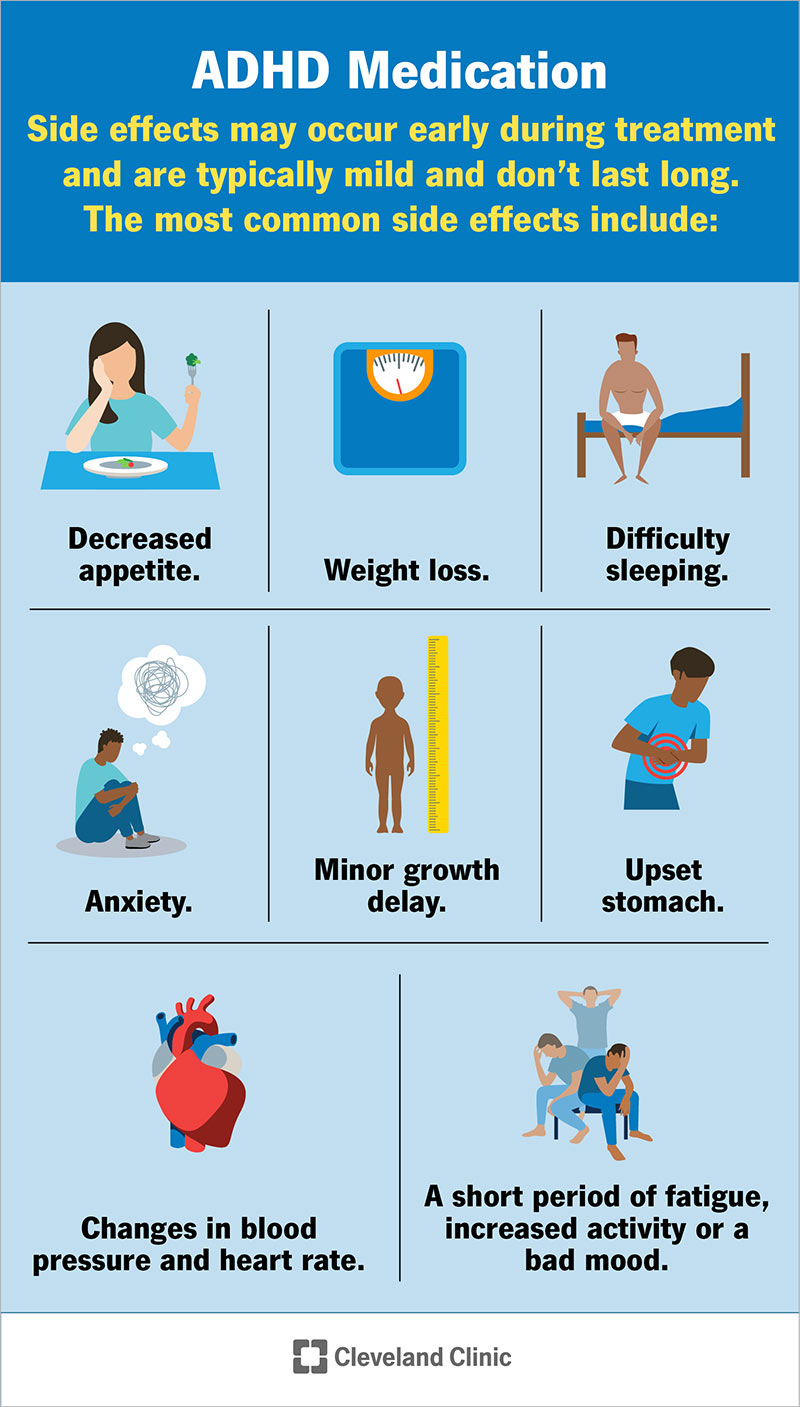Exploring Reliable ADHD Therapy Choices for All Ages
The intricacies of Focus Deficit Hyperactivity Problem (ADHD) present special obstacles across various age teams, necessitating a thorough exploration of reliable treatment options. A combination of behavior treatments, medicinal interventions, and way of living modifications has actually revealed assurance in attending to the varied demands of individuals with ADHD. The efficiency of these techniques can differ significantly based on individual situations, increasing vital concerns regarding customized techniques. As we take a look at the spectrum of treatment modalities available, it becomes necessary to think about not only their instant influences yet additionally their lasting ramifications for people and families.
Understanding ADHD and Its Impact
Attention-Deficit/Hyperactivity Disorder (ADHD) is a neurodevelopmental condition characterized by relentless patterns of inattention, hyperactivity, and impulsivity that can substantially affect numerous facets of a person's life. It commonly manifests in youth, although symptoms can continue into adulthood. The core symptoms of ADHD can interfere with academic performance, impede social communications, and complicate work undertakings.
Individuals with ADHD often fight with preserving concentrate on tasks, organizing activities, and following via on instructions, which can lead to scholastic underachievement (Depression Treatment). In social contexts, impulsivity might result in problems in developing and maintaining relationships, as people may disrupt discussions or make rash decisions without taking into consideration consequences
Additionally, ADHD can co-occur with other psychological wellness conditions, such as anxiousness and depression, even more complicating diagnosis and therapy. The irregularity in signs and symptom discussion suggests that ADHD can influence individuals in different ways, necessitating a customized technique to administration. Recognizing ADHD's complex influence is essential for establishing efficient methods that sustain individuals in navigating day-to-day challenges and accomplishing their possibility. Comprehensive recognition of ADHD's nature and ramifications prepares for exploring appropriate treatment options customized to every individual's demands.
Behavioral Therapies for ADHD
Many behavioral treatments have actually been developed to successfully deal with the challenges linked with ADHD, concentrating on customizing specific habits and fostering vital abilities. Among the most acknowledged approaches are cognitive-behavioral treatment (CBT), parent training, and social skills training.
CBT aids individuals determine and change unfavorable idea patterns and habits, advertising a much more positive outlook and boosted self-regulation. This therapy often consists of useful approaches for handling impulsivity and boosting organization. Moms and dad training programs encourage caregivers by equipping them with techniques to strengthen favorable behaviors and established consistent boundaries, which can be specifically advantageous for kids with ADHD.
Social skills training is one more crucial component, mentor individuals with ADHD just how to engage effectively with peers - Depression Treatment. This approach typically involves role-playing and comments to boost communication, collaboration, and problem resolution skills
Integrating these behavior therapies into a thorough therapy plan can dramatically enhance working and lifestyle for individuals with This Site ADHD. Ultimately, the efficiency of these treatments depends upon customized approaches that think about the unique requirements of everyone, consequently cultivating strength and adaptability in every day life.
Medicine Options Available
For several individuals with ADHD, medicine can play a substantial duty in taking care of signs and improving total functioning. Both primary groups of medicines suggested for ADHD are stimulants and non-stimulants.
Energizers, such as methylphenidate and amphetamine-based medicines, are one of the most generally made use of therapies. These medications function by raising the degrees of natural chemicals, particularly dopamine and norepinephrine, in the mind, which assists boost attention and decrease impulsivity and hyperactivity. They commonly generate quick results, making them a recommended choice for many people.

It is necessary for doctor to carry out a comprehensive assessment to identify one of the most appropriate medication based on specific demands, case history, and prospective negative effects. Normal follow-up and surveillance are likewise important to guarantee the effectiveness of the selected therapy and to make any kind of required adjustments.
Lifestyle Modifications to Think About
Taking care of ADHD properly prolongs beyond medication, as lifestyle modifications can significantly boost overall health and signs and symptom control. Integrating structured routines is essential; regular routines help people with ADHD manage their time efficiently and decrease sensations of bewilder.
Routine physical task is another crucial element. Workout not only helps to boost concentration however additionally improves state of mind and lowers tension degrees. Tasks such as yoga or team sports can be particularly advantageous, advertising both physical health and fitness and social interaction.
Nourishment also plays a critical duty. Depression Treatment. A well balanced diet regimen abundant in omega-3 fatty acids, entire grains, and lean healthy proteins can add to improved emphasis and cognitive function. Limiting sugar and refined foods is recommended, as these can exacerbate attention deficit disorder and impulsivity
Rest hygiene is vital for taking care of ADHD signs and symptoms. Developing a normal rest routine and creating a relaxed atmosphere can improve rest high quality, resulting in much better attention and psychological law.
Alternative and Alternative Strategies
Alternate and alternative methods to ADHD treatment supply a varied variety of options that match conventional approaches. These approaches frequently concentrate on way of life adjustments, nutritional interventions, and restorative practices that aim to improve general well-being while addressing ADHD signs and symptoms.

Mindfulness and behavior modifications are also gaining traction as alternative interventions. Practices such as yoga exercise, meditation, and cognitive-behavioral treatment can cultivate self-regulation and improve interest. These techniques sustain emotional strength, which is particularly valuable for people with ADHD.
Organic supplements, such as ginkgo biloba and ginseng, are often explored; however, it is crucial to speak with medical care specialists before integrating these into treatment strategies. While alternative and alternative strategies can give beneficial assistance, they should ideally be used in conjunction with evidence-based treatments to accomplish optimal outcomes for handling ADHD throughout every ages.
Conclusion
In summary, effective ADHD therapy requires a thorough strategy that consists of behavior modifications, medication, way of life modifications, and all natural techniques. Customized treatments can considerably enhance individuals' working and top quality of life, while appropriate medicine guarantees ideal signs and symptom management. Additionally, embracing organized regimens, participating in regular exercise, and practicing mindfulness can improve emotional regulation and focus. This multifaceted strategy underscores the significance article of individualized care in addressing the varied requirements of individuals with ADHD across all age groups.